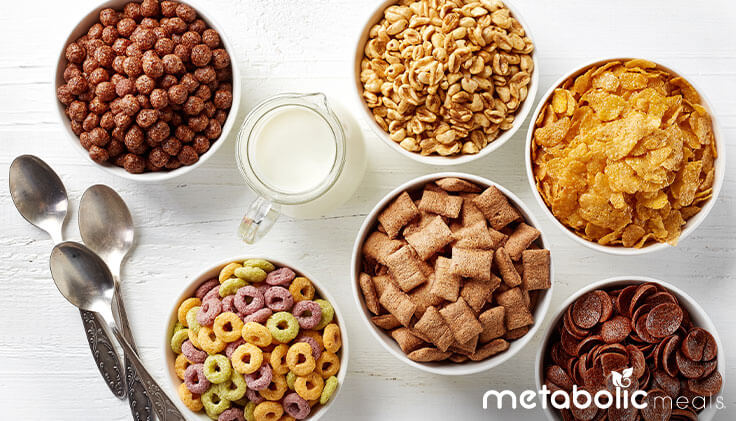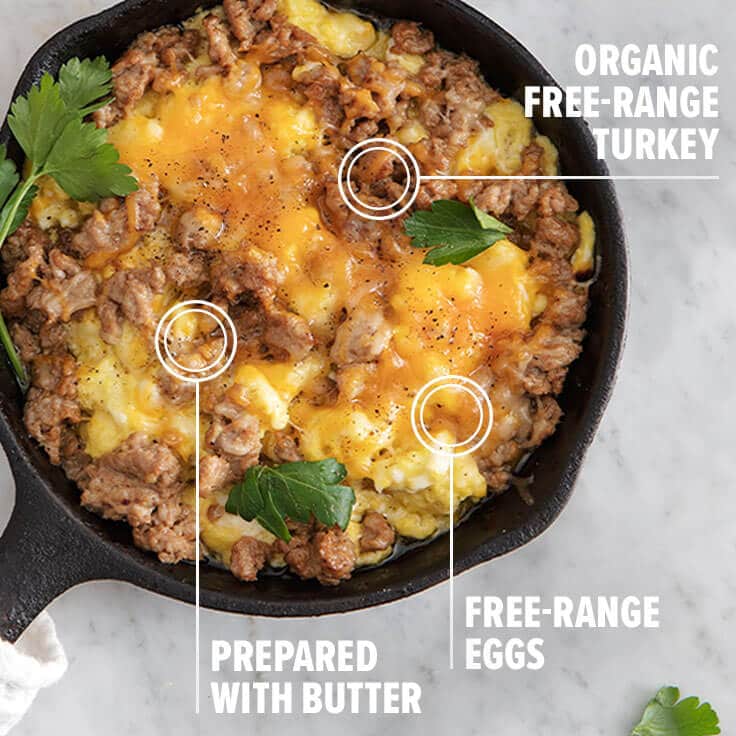ARTICLE AT A GLANCE
Teaching kids good eating habits early will set them up for success for the rest of their lives. When your child’s body isn’t receiving the nutrients it needs, several adverse health conditions can occur. This blog explores ways to encourage your child to choose clean, unprocessed foods that support significant health benefits such as:
The harm that processed foods causes our bodies is becoming more apparent every day. Processed foods provide plenty of harm in the form empty calories and little or no nutrition that our bodies can actually use. Naturally, ultraprocessed foods — those packed with artificial flavors, sweeteners, colors, and other ingredients that don’t occur naturally — are the worst of these culprits, and unfortunately, they make up a high percentage of people’s diets, children’s diets included.
As we’ve grown more aware of the harm caused by processed foods, we’ve also learned more about what we consider “good” and “bad” food. For example, we know that not all fat is bad. The problem mainly lies with hydrogenated oils and trans fatty acids, which can increase low-density lipoprotein, or “bad cholesterol.”
A diet high in trans fats is a common risk factor in chronic inflammation, cellular dysfunction, blood clots, insulin resistance, and type 2 diabetes. If that diet is also high in processed sweeteners, such as high-fructose corn syrup, then the risk of such issues becomes much higher.
Unlike natural sugar, high-fructose corn syrup can linger in our bodies for up to three days, raising our blood pressure and insulin resistance, as well as our risks of diabetes, weight gain, and obesity. In one Princeton study, researchers showed that the artificial sweetener is significantly more likely to cause weight gain than simple table sugar.
Even foods that don’t obviously contain processed fats and artificial sweeteners often contain plenty of ultraprocessed colors. For example, Red 40, which is made from petroleum distillates (or coal tars) and is found in baked goods, candies, drinks, and even breakfast cereals, has been linked to numerous cases of adverse allergic reactions, many of them serious, and has been shown to cause hyperactivity in some children.
 Many breakfast cereals contain artificial dyes and sweeteners.
Many breakfast cereals contain artificial dyes and sweeteners.
All of these ingredients make ultraprocessed foods worse than worthless — they’re detrimental to our health and critical to the health and development of young children.
The Benefits of Basic Nutrition
Some ultraprocessed foods can be easily replaced without having to dramatically change your child’s diet. Banning sodas, for example, is an easy but important measure. A single 12-ounce can of soda can contain about 40 grams of added sugar or artificial sweetener, and drinking it has been linked to obesity and diabetes.
When cooking for your kids, you can also replace margarine with real butter, which contains loads of anti-tumor conjugated linoleic acid, which inhibits the growth of cancer cells. Real butter is also anti-fungal and stimulates muscle growth. It contains butyric acid, vitamin K2, and fat-soluble vitamins A, D, and E, all of which help prevent excess weight gain.
 Organic Breakfast Sausage and Cheddar Scrambler, made with real ingredients.
Organic Breakfast Sausage and Cheddar Scrambler, made with real ingredients.
You can cut out hydrogenated fats by cutting out fried and fast foods. Many restaurants use it because it stands up better to heat and can be used longer — characteristics that also make it harmful to your child’s arteries. Replace processed snacks with healthier, more natural options, such as fresh or dried fruit, nuts and seeds, and organic full-fat yogurt.
Eliminating ultraprocessed foods from your and your children’s diets is simple once you know how to look for them, and it can bring significant health benefits, such as:
1. Fewer mood swings.
When your child’s body isn’t receiving the nutrients it needs, it can lead to several biochemical imbalances, including with hormone production and regulation. Combined with the body being left nutrient-deficient, this can lead to increased mood swings, anger, sadness, depression, and more. Proper nutrition improves these functions and helps your child feel happier as a result.

Proper nutrition can help your child feel happier.
2. Improved weight management.
Because most processed foods are loaded with sugars, sweeteners, and fats, they commonly lead to weight gain and other health issues — yes, even in kids. Eliminating junk food, especially fried foods, candy, potato chips, processed cheese, and soda cuts out a significant portion of your child’s daily calories. This makes excess weight gain less likely and lowers your child’s risks of related health issues.

Swap out junk for healthy snacks, like carrots, almonds, and Greek yogurt.
3. Reduced health risks.
Foods like French fries, cheeseburgers, and margarine contain loads of saturated and trans fats. That makes them high risk factors in chronic issues such as heart disease, high cholesterol, and diabetes. The additional sodium in most fast foods also increases risks of high blood pressure and kidney disease, so the earlier children learn to avoid them, the better.
4. Optimal physical activity.
As you eliminate processed foods in your child’s diet, you naturally turn to cleaner, healthier options. It should include plenty of pasture-raised proteins, organic fruits and veggies, and healthy fats such as seeds and nuts. Balanced nutrition helps children’s muscles grow stronger and their bodies function properly. With higher-quality energy, children can enjoy being more physically active every day.
A balanced diet will provide your child with more energy for playtime.
The fact that ultraprocessed foods are so common in many of our diets, especially those of our nation’s children, is alarming. But you can break the cycle. Identify and eliminate the most harmful foods from your kitchen and menu, and replace them with healthier, minimally processed, or unprocessed foods as much as possible. Try a healthy prepared meal service for maximum efficiency and peace of mind. These steps will not only help your children live healthier in the short term, but they will also empower your kids to make better choices for the rest of their lives.







